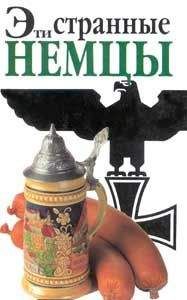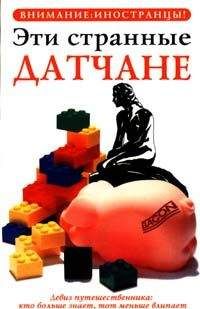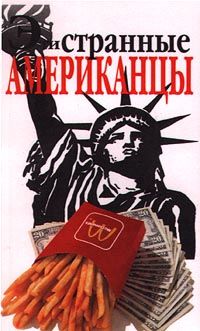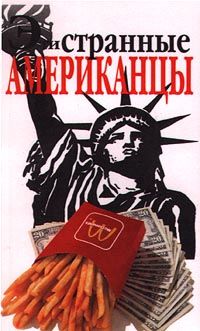Неизвестен Автор - Словарь американских идиом (8000 единиц)
[throw] or [feed one to the wolves] <v. phr.> 1. To turn someone into a scapegoat. * /In order to explain the situation to the media, the governor blamed the mayor and threw him to the wolves./ 2. To send into danger without protection. * /Mary was very shy. Her friends did not come to speak before the club in her place. They threw her to the wolves./ * /The boys on the football team were so small that when they played a good team they were thrown to the wolves./
[throw out] or [toss out] <v.> 1. To put somewhere to be destroyed because not wanted. * /He didn't need the brush anymore so he threw it out./ Syn.: THROW AWAY(1). 2. To refuse to accept. * /The inspector tossed out all the parts that didn't work./ 3. To force to leave; dismiss. * /When the employees complained too loudly, the owner threw them out./ Syn.: KICK OUT, TURN OUT(1). 4. To cause to be out in baseball by throwing the ball. * /The shortstop tossed the runner out./
[throw out of gear] <v. phr.> 1. To separate the gears of (a car or some other machine) when you want to stop it. * /When John wanted to stop, he threw the car out of gear and braked sharply./ 2. To stop or bother (what someone is doing or planning); confuse; upset. * /The whole country was thrown out of gear by the assassination of the President./ * /My mother's illness threw my plans for the summer out of gear./
[throw over] <v.> To give up for another; break your loyalty or attachment to. * /Bob threw Mary over for a new girlfriend./ * /Tom threw over those who helped him run for class president after he was elected./
[throw the baby out with the bath (bathwater)] <v. phr.> To reject all of something because part is faulty. * /God knows that there are weaknesses in the program, but if they act too hastily they may cause the baby to be thrown out with the bathwater./
[throw the book at] <v. phr.>, <informal> To give the most severe penalty to (someone) for breaking the law or rules. * /Because it was the third time he had been caught speeding that month, the judge threw the book at him./
[throw together] <v.> 1. also [slap together] To make in a hurry and without care. * /Bill and Bob threw together a cabin out of old lumber./ * /The party was planned suddenly, and Mary threw together a meal out of leftovers./ 2. To put in with other people by chance. * /The group of strangers was thrown together when the storm trapped them on the highway./ * /Bill and Tom became friends when they were thrown together in the same cabin at camp./
[throw up] <v.> 1. <informal> or <slang> [heave up]. To vomit. * /The heat made him feel sick and he thought he would throw up./ * /He took the medicine but threw it up a minute later./ 2. <informal> To quit; leave; let go; give up. * /When she broke their engagement he threw up his job and left town./ 3. To build in a hurry. * /The contractor threw up some temporary sheds to hold the new equipment./ 4. To mention often as an insult. * /His father threw up John's wastefulness to him./
[throw up one's hands] <v. phr.> To give up trying; admit that you cannot succeed. * /Mrs. Jones threw up her hands when the children messed up the living room for the third time./ * /When Mary saw the number of dishes to be washed, she threw up her hands in dismay./
[throw up one's hands in horror] <v. phr.> To be horrified; feel alarmed; give up hope of straightening things out; be shocked by something terrible. * /When Mrs. Brown saw the mess the children were making in her living room, she threw up her hands in horror./ * /Everybody threw up their hands in horror at the destruction caused by the hurricane./
[throw up the sponge] See: THROW IN THE SPONGE.
[thumb] See: ALL THUMBS, GREEN THUMB, TURN THUMBS DOWN, TWIDDLE ONE'S THUMBS, UNDER ONE'S THUMB or UNDER THE THUMB OF.
[thumb a ride] <v. phr.>, <informal> To get a ride by hitchhiking; hitchhike. * /Not having much money, Carl decided to thumb a ride to New York./
[thumb one's nose] <v. phr.> 1. To hold one's open hand in front of one's face with one's thumb pointed at one's nose as a sign of scorn or dislike. * /After Bob ran into the house he thumbed his nose at Tom through the window./ 2. <informal> To look with disfavor or dislike; regard with scorn; refuse to obey. - Used with "at". * /Betty thumbed her nose at her mother's command to stay home./ * /Mary thumbed her nose at convention by wearing odd clothes./ Compare: LOOK DOWN ON.
[thumb through] <v. phr.> To examine superficially; read cursorily. * /I have read "War and Peace" but Fran has only thumbed through it./
[thunder] See: BLOOD AND THUNDER, STEAL ONE'S THUNDER.
[thus and so] also [thus and thus] <adv. phr.> In a particular way; according to directions that have been given. * /The teacher is very fussy about the way you write your report. If you don't do it thus and so, she gives you a lower mark./
[thus far] See: SO FAR.
[ticket] See: SPLIT TICKET, STRAIGHT TICKET, THE TICKET, WALKING PAPERS also WALKING TICKET.
[tickle pink] <v. phr.>, <informal> To please very much; thrill; delight. Usually used in the passive participle. * /Nancy was tickled pink with her new dress./
[tickle to death] See: TO DEATH.
[tick off] <v.> 1. To mention one after the other; list. * /The teacher ticked off the assignments that Jane had to do./ 2. To scold; rebuke. * /The boss ticked off the waitress for dropping her tray./ 3. To anger or upset. - Usually used as ticked off. * /She was ticked off at him for breaking their dinner date again./
[tide] See: TURN THE TIDE.
[tide over] <v.> To carry past a difficulty or danger; help in bad times or in trouble. * /He was out of work last winter but he had saved enough money to tide him over until spring./ * /An ice cream cone in the afternoon tided her over until supper./ Compare: SEE THROUGH.
[tide turn] See: TURN THE TIDE.
[tidy sum] <n. phr.> A large amount of money. * /The Smith's big new home cost them a tidy sum./ Compare: PRETTY PENNY.
[tie] See: FIT TO BE TIED.
[tie down] <v.> To keep (someone) from going somewhere or doing something; prevent from leaving; keep in. * /Mrs. Brown can't come to the party. She's tied down at home with the children sick./ * /The navy tied the enemy down with big gunfire while the marines landed on the beach./ * /I can't help you with history now! I'm tied down with these algebra problems./
[tied to one's mother's apron strings] Not independent of your mother; not able to do anything without asking your mother. * /Even after he grew up he was still tied to his mother's apron strings./
[tie in] <v.> To connect with something else; make a connection for. - Often used with "with". * /The teacher tied in what she said with last week's lesson./ * /The English teacher sometimes gives compositions that tie in with things we are studying in other classes./ * /The detectives tied in the fingerprints on the man's gun with those found on the safe, so they knew that he was the thief./
[tie-in] <n.> A connection; a point of meeting. * /John's essay on World War II provides a perfect tie-in with his earlier work on World War I./
[tie in knots] <v. phr.> To make (someone) very nervous or worried. * /The thought of having her tooth pulled tied Joan in knots./ * /The little boy's experience with the kidnapper tied him in knots and it was hard for him to sleep well for a long time./
[tie into] See: LACE INTO.
[tie one's hands] <v. phr.> To make (a person) unable to do anything. - Usually used in the passive. * /Since Mary would not tell her mother what was bothering her, her mother's hands were tied./ * /Charles wanted to help John get elected president of the class, but his promise to another boy tied his hands./ * /Father hoped Jim would not quit school, but his hands were tied; Jim was old enough to quit if he wanted to./
[tie the knot] <v. phr.>, <informal> To get married; also to perform a wedding ceremony. * /Diane and Bill tied the knot yesterday./ * /The minister tied the knot for Diane and Bill yesterday./
[tie up] <v. phr.> 1. To show or stop the movement or action of; hinder; tangle. * /The crash of the two trucks tied up all traffic in the center of town./ * /The strike tied up the factory./ 2. To take all the time of. * /The meeting will tie the President up until noon./ * /The Senate didn't vote because a debate on a small point kept it tied up all week./ * /He can't see you now. He's tied up on the telephone./ 3. To limit or prevent the use of. * /His money is tied up in a trust fund and he can't take it out./ * /Susan tied up the bathroom for an hour./ 4. To enter into an association or partnership; join. * /Our company has tied up with another firm to support the show./ 5. To dock. * /The ships tied up at New York./ 6. <slang> To finish; complete. * /We've talked long enough; let's tie up these plans and start doing things./
[tie-up] <n.> A congestion; a stoppage of the normal flow of traffic, business or correspondence. * /There was a two-hour traffic tie-up on the highway./ * /No pay checks were delivered because of the mail service tie-up./
[tight] See: SIT TIGHT.
[tight end] <n.> An end in football who plays close to the tackle in the line. * /The tight end is used to catch passes but most often to block./ Contrast: SPLIT END.
[tighten one's belt] <v. phr.> To live on less money than usual; use less food and other things. * /When father lost his job we had to tighten our belts./ Often used in the expression "tighten one's belt another notch". * /When the husband lost his job, the Smiths had to do without many things, but when their savings were all spent, they had to tighten their belts another notch./
[tighten the screws] <v. phr.> To try to make someone do something by making it more and more difficult not to do it; apply pressure. * /When many students still missed class after he began giving daily quizzes, the teacher tightened the screws by failing anyone absent four times./
[tight-lipped] <adj.> A taciturn person; one who doesn't say much. * /The witness was tight-lipped about what she saw for fear of physical retaliation by the mob./
[tight money] <n. phr.> The opposite of inflation, when money is hard to borrow from the banks. * /The government decided that tight money is the way to bring down inflation./
[tight squeeze] <n. phr.> A difficult situation; financial troubles. * /The Browns aren't going out to dinner these days; they are in a tight squeeze./
[tightwad] <n. phr.> A stingy person. * /My father is such a tightwad that he won't give me an allowance./
[Tijuana taxi] <., <slang>, <citizen's band radio jargon> A police car. * /I've got a Tijuana taxi in sight./
[till] See: ROB THE TILL or HAVE ONE'S HAND IN THE TILL.
[till the cows come home] <adv. phr.> Until sunset; until the last. * /The women in the country used to sit in the spinning room making yarn out of skeins of wool, usually till the cows came home./
[till the last gun is fired] or [until the last gun is fired] <adv. phr.> Until the end; until everything is finished or decided. * /Fred always liked to stay at parties until the last gun was fired./ * /The candidate didn't give up hope of being elected until the last gun was fired./
[tilt] See: FULL TILT.
[tilt at windmills] <v. phr.>, <literary> To do battle with an imaginary foe (after Cervantes' Don Quixote). * /John is a nice guy but when it comes to departmental meetings he wastes everybody's time by constantly tilting at windmills./
[time] See: ABOUT TIME, AGAINST TIME, AT A TIME, AT ONE TIME, AT THE SAME TIME, AT TIMES, BEHIND THE TIMES, BEHIND TIME, BIDE ONE'S TIME, BIG TIME, EVERY TIME ONE TURNS AROUND, FOR THE TIME BEING, FROM TIME TO TIME, GIVE A HARD TIME, HAVE A TIME, HIGH TIME, IN GOOD TIME, IN NO TIME, IN THE NICK OF TIME, IN TIME, KEEP TIME, LESS THAN NO TIME, LIVE ON BORROWED TIME, MAKE TIME, MARK TIME, ONCE UPON A TIME, ON ONE'S OWN TIME, ON TIME, PASS THE TIME OF DAY, SMALL-TIME, TAKE ONE'S TIME, TWO-TIME.
[time and again] or [time and time again] <adv.> Many times; repeatedly; very often, * /I've told you time and again not to touch the vase!/ * /Children are forgetful and must be told time and time again how to behave./
[time and a half] <n. phr.> Pay given to a worker at a rate half again as much as he usually gets. * /John got time and a half when he worked beyond his usual quitting time./ * /Tom gets one dollar for regular pay and a dollar and a half for time and a half./
[time is ripe] The best time has come for doing something. * /The Prime Minister will hold elections when the time is ripe./ * /Lee saw his mother was upset, so he decided the time was not ripe to tell her about the broken window./
[time of day] See: NOT TO GIVE ONE THE TIME OF DAY.
[time off] <n. phr.> A period of release from work. * /If I had some time off this afternoon, I would finish writing the letters I promised to my family./
[time of one's life] <n. phr.> A very happy or wonderful time. * /John had the time of his life at the party./ * /I could see that she was having the time of her life./
[time out] <n. phr.> Time during which a game, a lecture, a discussion or other activity is stopped for a while for some extra questions or informal discussion, or some other reason. * /He took a time out from studying to go to a movie./ * /The player called time out so he could tie his shoe./ * /"Time out!" - The students said, "Could you explain that again?"/
[tin ear] <n. phr.> 1. A lack of sensitivity to noise. * /The construction noise doesn't bother Fred; he's got a tin ear./ 2. A lack of musical ability; state of being tone deaf. * /People with a tin ear make poor choir members./
[tingle] See: SPINE-TINGLING.
[tinker's damn] See: NOT WORTH A TINKER'S DAMN.
[Tin Pan Alley] <n. phr.> The pop music industry. * /What kind of music will Tin Pan Alley come up with this year?/
[tip] See: AT THE TIP OF ONE'S TONGUE, FROM TIP TO TIP.
[tip off] <v.>, <informal> To tell something not generally known; tell secret facts to; warn. * /The class president tipped off the class that it was the superintendent's birthday./ * /The thieves did not rob the bank as planned because someone tipped them off that it was being watched by the police./ Compare: PUT WISE.
[tip the balance] See: TIP THE SCALES(2).
[tip the scales] <v. phr.>, <informal> 1. To weigh. * /Martin tips the scales at 180 pounds./ 2. or [tip the balance] To have important or decisive influence; make a decision go for or against you; decide. * /John's vote tipped the scales in our favor, and we won the election./ Compare: TURN THE TIDE.
[tired] See: DEAD TIRED, SICK AND TIRED.
[tire out] See: WEAR OUT(2).
[tit for tat] <n. phr.> Equal treatment in return; a fair exchange. * /Billy hit me, so I gave him tit for tat./ * /I told him if he did me any harm I would return tit for tat./ * /They had a warm debate and the two boys gave each other tit for tat./ Compare: GET BACK AT, EYE FOR AN EYE AND A TOOTH FOR A TOOTH.




